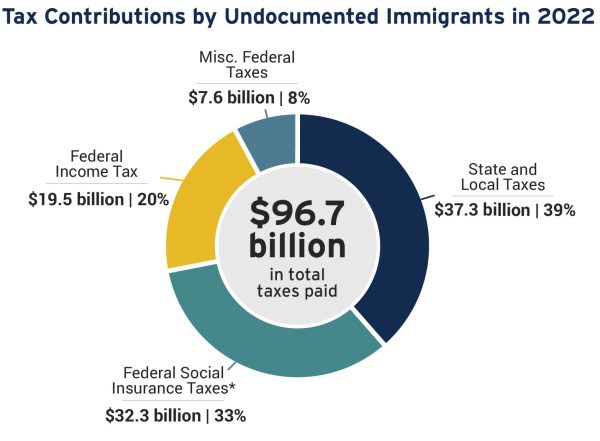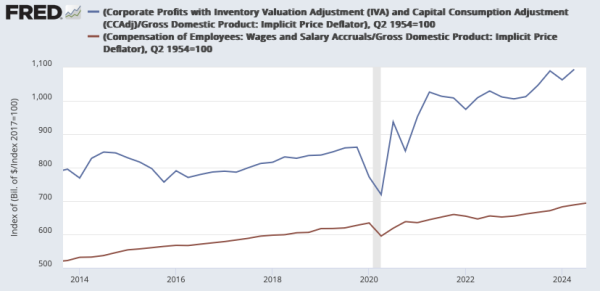President-elect Donald Trump will take office in January, and while he and his family may be well off, many Americans have found that the cost of goods has skyrocketed. American River College students in particular may find difficulty securing gainful employment—before, during and after their time in college. Once policies that negatively impact undocumented labor, trade unions and education come into effect, ARC students will feel the pinch alongside the diverse demographics of Americans and migrants currently residing within the United States.
The most controversial position of Trump’s “America First” policy can easily be described as isolationist. The deportation and subsequent closing of borders to undocumented immigrant labor is one example, while tariffs designed to return manufacturing to the U.S. is another. Both of these policies have been shown to have a detrimental effect on domestic prosperity by causing inflation and creating labor insufficiencies that will further drive up the cost of goods. The common rebuttal to these consequences is that the result of isolationist policies will be U.S. jobs growth.
This anticipation of returning jobs to the U.S. should not be expected. Trump’s first presidency saw historic unemployment rates caused in part by the COVID-19 pandemic, but exacerbated by the administration’s lack of a cohesive plan to reduce the trade deficit, which grew by $198 billion under his leadership. Further, the previous Trump administration saw increased corporate profits amid a rollback of wage protection legislation, which left many unemployed workers without a safety net. It’s clear from the results of the Trump administration’s previous four years that these isolationist policies are not designed to support lower and middle-class Americans, the minimum benchmark that ARC students hope to achieve.
As they progress through college, ARC students will encounter a more competitive job market for those jobs that will be accessible to them. College students typically suffer from labor mobility by the nature of their educational pursuits. Students are tied to the campuses they are attending during predetermined hours to attend their various courses. As such, students lack availability in their schedule to take on full-time jobs. Additionally, this connection to their campus leaves them unable to take on jobs located in far flung areas of their region, such as the agricultural and industrial centers of the greater Sacramento area. Students will then have limited employment options and may take on lower-wage jobs to secure income, causing their shrunken budget to be further limited by the high cost of goods.
Additional jobs are expected to become available following the deportation of undocumented immigrants under the Trump administration. These jobs will remain out of reach for most ARC students, however, as the hours for jobs such as the agricultural or construction industries are often inflexible. Thus, promises of gainful employment under the Trump administration will fall onto deaf ears for ARC students.
Another doubt is that the deportation of the undocumented labor force in the U.S. will do anything to lower unemployment rates among U.S. citizens. The vast majority of Americans don’t believe that the jobs currently being filled by undocumented workers will then be occupied by U.S. citizens following the undocumented worker’s deportation, Pew Research numbers have recently shown. These research numbers show that three-quarters of U.S. voters believe that undocumented workers fill jobs that Americans don’t want, and therefore ARC students will find no opportunities arising from these job openings brought about by fiat, and should only expect their food costs to rise.
The expectation that students should have for job prospects following the deportation of undocumented immigrants is a significant rise in the cost of food since farm labor will depart alongside the undocumented labor that supports the agricultural industry. With that departure, the U.S. will lose just shy of $100 billion in sales and payroll tax revenue collected on account of undocumented immigrants being present in the U.S.

(Source: Institute of Taxation and Economic Policy)
The undocumented labor’s absence will negatively impact the economy through its strength in numbers. The same can be said for the impact of unions upon the public good. Increases in union membership are associated with economic equality, increases in pay, better benefits and safer working conditions in the communities with which they operate.
These gains are currently under threat under the second Trump administration as Tesla Chief Executive Officer Elon Musk is slated to lead a Department of Government Efficiency, while becoming closer with Trump’s inner circle. This wasn’t unintentional on the controversial CEO’s part. Tesla is one of the few non-union automobile manufacturers in the U.S., and Musk’s blossoming relationship with Trump will only hurt worker’s rights. Trump’s first round in office signed into law several anti-union edicts that eased the firing of federal employees.
For many of the government employees that work in the greater Sacramento area, Trump’s appointed heads to the Department of Government Efficiency have been hostile towards federal workers. Musk has been seen on his social media platform X threatening low level federal employees, while Vivek Ramaswamy has recently proposed cutting 50% of federal jobs, using a lottery system based around the employees social security numbers. In Sacramento County, where just under 7,000 federal workers are employed, the county may see half of those jobs disappear.
As ARC students transition into the workforce under Trump’s administration, this anti-union policy will discourage dissent, keep wages stagnate or drop and encourage wealth consolidation for industry magnates that dominate the fields that students are expected to move into following their graduation.

(Source: Federal Reserve Bank of St. Louis/U.S Bureau of Economic Analysis)
While this may seem like a bleak future for college students currently enrolled in ARC, it’s the incoming generation that will face the most unfortunate impact to their future, if Trump follows through with his plan to shut down the U.S. Department of Education.
The Trump administration’s intent to eliminate the federal Department of Education can only spell trouble for K-12 students who may aspire to become ARC students. Federal funding from the U.S Department of Education not only supplies funding for the nation’s K-12 schools, but funds other programs such as the Pell Grant program and Title 1 programs that many college students rely on for financial support.
This elimination of federal education programs that many Americans rely upon to achieve upward economic mobility is based on ideological principles. Trump’s website accuses educational institutions of promoting Marxism in classrooms. As such, the Trump administration promises to require that educators retain their employment by displaying patriotic loyalty and eschewing cultural representation in the classroom, which will be enforced through withholding of endowments.
This would also include the promotion of Judeo-Christian religious ideology in the U.S. school system, directly contrary to the First Amendment of the U.S. Constitution. In an era where students are becoming less socially engaged with their educational institutions, homogeneous educational programs based on theological assimilation will only dampen the integrity of an American student’s education, while producing indoctrinated students that lack open-minded critical thinking skills.
The future for ARC students preserving the exchange of ideas, be it through financial insecurity or educational suppression, stands against the foundational principles that America was founded upon.
This article is the third in a multi-part series.








